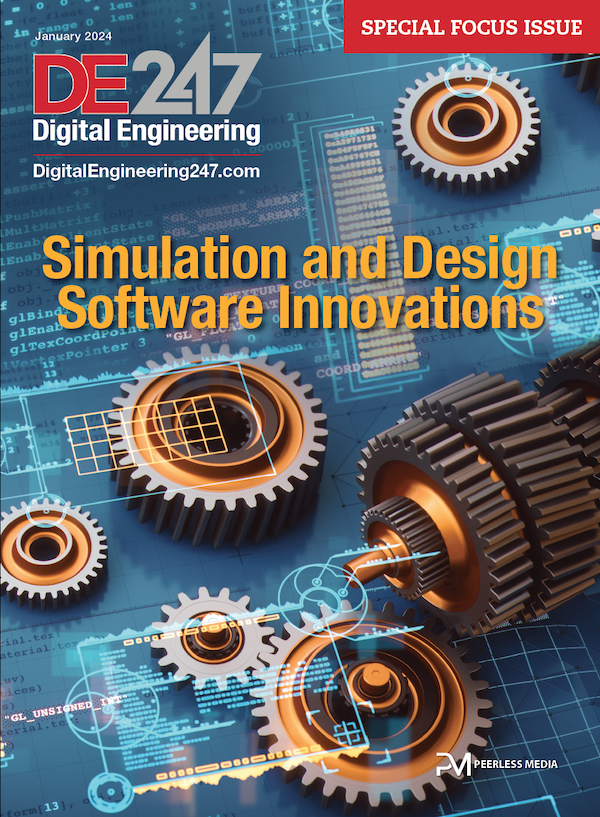Latest News
June 13, 2013
In the flickering light of a candelabra, a mysterious gypsy girl spoke of the future of manufacturing. Studying a series of upturned tarot cards, she declared, “Products as we know them will no longer be the same. Cars will be transformed in many ways. They will not be bought and owned as they are today. Instead, people will buy mobility ... We will see it everywhere—products delivered as a service, personalized and optimized to individual needs ... It begins with products that are smarter. Software revolutionizes the way people interact with and learn from products. Connected, sharing vast amount of data in the cloud, sending early warnings, receiving continual enhancements, they reach unimagined level of performance and value.”
The voice of the fortuneteller is the voice of PTC, dramatized for the video clip that launched PTC Live Global 2013 conference (Anaheim Convention Center, June 9-12). Later, the company’s senior VP and CTO Andrew Wertkin echoed the gypsy girl’s predictions.
“Vehicles are essentially big mobile devices,” he said. “They bring capabilities in infotainment, but they also bring in capabilities around active safety with vehicle-to-vehicle communication, vehicle-to-infrastructure communication, understanding how the vehicle is used, when it might need service ... The Roomba from iRobot [is] a fantastic example as well. A learning robot, a robot that consistently uses its sensors to understand where there’s dirt, where there might be a wall, stairs, a pet, a corner, when its battery is low ... They’re connected not just for monitoring, but for features and functions.”
The fortuneteller wasn’t looking into the future; she was, in fact, looking at the present. When I tweeted Wertkin’s talk of “Philips electronic pills—pills that understand where they are in the body ... [with] tiny micropumps that pump out the medicine exactly at the right point, pills that are sensing body temperature” as the future that he saw, he corrected me in a reply tweet: “That future is available today.”
@kennethwongsf that future is available today!— Andrew Wertkin (@awertkin) June 11, 2013
Products that Talk Back: Wertkin emphasized, “The common theme is data—specifically what kind of information can flow back and forth to optimize these devices, to change how they behave, to collect data about how they’re behaving, run that through analytics, perhaps to offer better offerings we can bring to market, understand usage patterns. It’s all about data,”
Product lifecycle management (PLM) software, PTC’s primary domain, revolves around design data and manufacturing data. The smart products Wertkin was citing throughout his presentation, on the other hand, revolves around real-time data, fed and transmitted through WiFi. Zipcar, the on-demand car sharing service provider, exemplifies the usage model Wertkin expected to become mainstream. Instead of perpetual ownership, consumers may choose on-demand rental and usage at a lower price point.
For a moment, I imagined refrigerators, ovens, beds, and blu-ray players delivered as part of a subscription. The appliances would be repaired and refreshed every quarter, swapped out with newer models when they are worn out, and updated with firmware over WiFi when needed. (Most blu-ray players already do that.) It’s the jump from software as a service (SaaS) to products as a service (PaaS). Evidently some PTC customers have already taken that leap of faith.
John Deere’s WorkSight, a dirt mover, for example, comes with fleet management and machine diagnostic software, dubbed JDLink. This interconnected sofware-hardware setup makes it possible for the vehicle to issue transmission overheat alerts and radiator usage reports. The vehicle can monitor its tire pressures and measure its payload. The marketing video says, “It can make a mechanic appear out of nowhere, with the right information, parts, and tools already in hand.” It’s a bit hyperbolic but might not be too far from the truth. If a vehicle can monitor its own vital signs, it can also schedule its own maintenance.
Data Acquisition: PTC’s prep work for this trend can be seen in its mergers and acquisition strategy. In 2011, the company acquired MKS, an application lifecycle management software maker. In 2012, it bought Servigistics, a service lifecycle management solution provider. MKS’s flagship product Integrity has been rebranded PTC Integrity. Wertkin, the man now in charge of PTC’s technology, is also an acquisition. He was once MKS’s CTO.
In mid-2011, PTC began a corporate re-engineering initiative, transforming its classic but overwhelming Pro/ENGINEER into a series of smaller, lighter Creo software modules. According to Mike Campbell, PTC’s divisional GM for CAD products, 50% of its customers are expected to be on Creo modules by the end of this year. The company’s current transition, apparent from its recent purchases, is the move to develop solutions for software-centric, service-oriented manufacturers.
John Deere’s promotion video of WorkSight, part of Andrew Wertkin’s presentation at PTC Live 2013:
Subscribe to our FREE magazine, FREE email newsletters or both!
Latest News
About the Author
Kenneth Wong is Digital Engineering’s resident blogger and senior editor. Email him at [email protected] or share your thoughts on this article at digitaleng.news/facebook.
Follow DE







